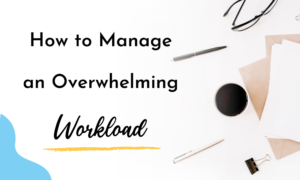So you want to be a better conversationalist, right?
Honing this skill will help you quickly build rapport with others and develop long-lasting relationships that can help you in the workplace and beyond.
You’ll also develop greater self-confidence and empathy along the way.
Developing your interpersonal skills takes practice but anyone can do it with consistent effort.
Keep reading to find out my best tips for becoming a better conversationalist.
1. Mirror their body language
Have you ever caught yourself yawning when someone else does?
Or starting to act more like your friend the longer you’re with them?
This is due to a subconscious thing called mirroring.
Mirroring is when you subtly mimic someone’s actions or body language.
Doing this can make the other person feel more comfortable and help to build trust and rapport.
Why does it work?
During our evolutionary time, it was important that we were in sync with our tribe or else we might be forced to fend on our own.
That typically didn’t turn out well…
So we naturally learned to be like the others to fit in and, ultimately, survive.
Here’s how to practice mirroring:
The next time you’re talking to someone, observe their body language and tone of voice.
If they lean back in their chair, you lean back too.
If they talk in a slow, methodical tone of voice, reflect that same tone back. This will make them feel more connected to you because they subconsciously perceive you as being more like them.
2. Be authentic
Being authentic means aligning your actions with your true beliefs, values, and personality.
When you are your true self, it’s like you’ve broken the shackles of insecurity.
Not only will you feel free, but others will be more likely to trust you.
Embrace who you are and stop worrying about what the other person is going to think of you.
If you’re truly focused on them, your own self-conscious worries will dissipate.
Authenticity is a law of success
Being authentic is one of the 5 Laws of Stratospheric Success (as outlined in one of my favorite books ever: The Go-Giver).
“The greatest gift you have to offer is yourself.”
The Go-Giver
If you haven’t read the Go-Giver, stop what you’re doing and grab this book!
Your brain will thank me later.
3. Give them your undivided attention
If you’re on your phone or finishing up a task while your friend is talking to you, you’re not truly listening.
Your brain only has the capacity to focus on one thing at a time.
Is it going to be your friend or your phone?
If you want to be a better conversationalist you need to learn to give undivided attention and stop multitasking.
Do this instead
- Maintain eye contact
- Focus on what they’re saying
- Ask questions to learn more about them.
If people notice that you’re not listening, they’ll feel disengaged, and it will be a lot harder to build rapport.
Here’s a challenge for you
Force yourself to be present.
Don’t think about what you’re going to say until they’re finished talking.
It’s easier said than done but will dramatically improve the quality of your conversations!

Do you want to be more productive in the morning without all the stress? Let me help you set your day up for success with my FREE Morning Habit Challenge!
Enter your name & email below to get your hands on it!
4. Genuinely listen
Okay, this one’s pretty obvious, but it’s surprising how many of us fail to be active listeners.
Most of us are thinking about our own thoughts racing through our heads rather than absorbing the story we’re being told.
There’s that old saying that goes, “You have two ears and one mouth for a reason.”
Cliche, but true.
Being a better listener will not only be rewarding for the other person but yourself as well.
You’ll connect quicker and maybe even learn a few things.
Here are just a few tips for getting better at this:
- Show you’re listening by nodding and making eye contact
- Don’t talk over them
- Keep your advice to yourself if it wasn’t asked for
Want to really get good at being an active listener? My other blog post will break down just how you can get there.
5. Expect to learn something new
Everyone you speak to knows something that you do not.
Everyone is good at something that you are not.
Go into the conversation with an open mind and you’ll be surprised at how much you can learn!
Ask questions when people share their stories and expertise.
Be genuinely curious about them, their background, and their goals.
Not only will this make them feel cared about, but it will be easier for you to put any potential judgments aside, too.
Here’s a wonderful Ted talk of Celeste Headlee, an award-winning radio journalist, sharing her tips for becoming a better conversationalist.
6. Control your impulse to share
If you want to be a better conversationalist, you have to control your impulses.
Thoughts and memories will inevitably pop up while the other person is talking and you will be very tempted to share them.
At this point, we may unknowingly interrupt the person so we can share. But this can come off as rude and disrespectful.
Notice the thought, but don’t vocalize it.
Kind of like catch and release fishing, you’ll notice a thought swim by, acknowledge it, but then you’ll let it go.
Remember, the conversation is about them. So focus your attention on them.
Do this and your connection with others will grow quickly.
7. Empathize before sharing
When your friend wraps up an epic story (and even if not-so-epic), really acknowledge what they said before sharing your own story.
If you quickly move on to what you want to talk about, it comes across as if you weren’t listening or just simply don’t care.
To avoid this, you’ll want to let them finish and at least acknowledge what they said before relating it to your own story.
Showing interest in their words is the most respectful thing you can do, but if you must get a word in, empathize with what they said before doing so.
8. Remember their name
As Dale Carnegie puts it, “A person’s name is to him or her the sweetest and most important sound in any language.”
Remember people’s names and you’ll hold the key to their hearts.
Not good at remembering names?
Here are 4 steps from memory expert, Ron White, that will help you hone your name-remembering skills in no time.
- Make remembering their name your one and only goal at that moment.
- Identify a unique facial feature (bald head, protruding chin, large nose, glasses, etc.)
- Link the person’s name to an image of something (your brain remembers images better). If someone’s name is Karen, maybe you relate it to the word “carrot” because it sounds similar.
- Connect your word (i.e. carrot) to the person’s facial feature (large nose). Then, imagine a funny scene, like a carrot coming out of Karen’s nose. The imagery is so weird, how could you not remember it?
Here’s Ron White’s video breaking down these four steps in more detail.
Final thoughts
Being a better conversationalist takes time and practice but the rewards of deeper human connection outweigh it all.
Here are the 7 ways to be a better conversationalist:
- Mirror their body language
- Give them your undivided attention – don’t multitask
- Genuinely listen
- Expect to learn something new
- Don’t interrupt
- Empathize with what they said before sharing your own thoughts
- Remember their name
Part of becoming a better conversationalist means growing your confidence. If you want some tips on how you can build your confidence, check out my other post How to Build Your Confidence at Work in 30 Days.








